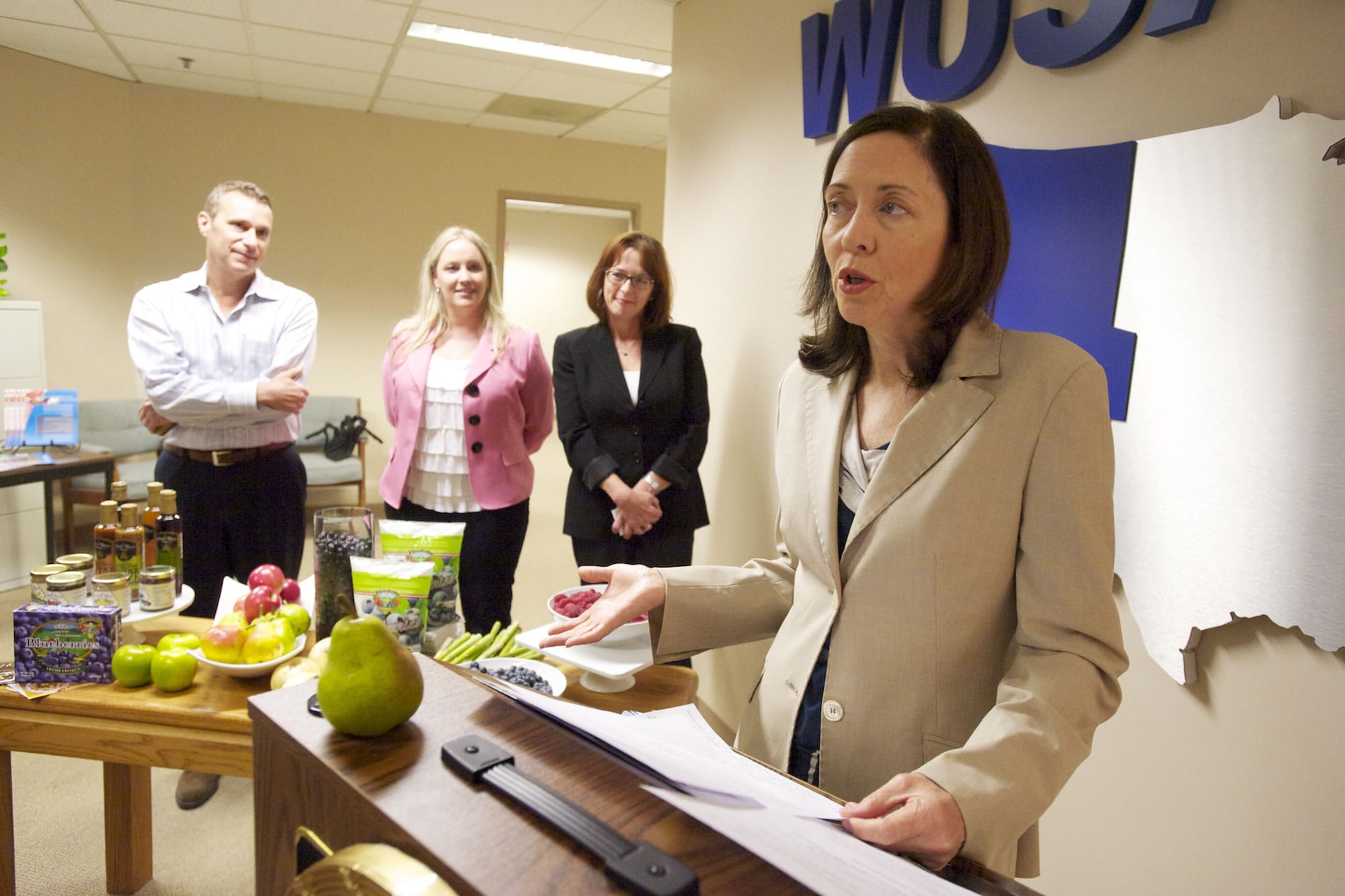Sen. Maria Cantwell said Friday that a failure by Congress to pass a long-overdue farm bill would amount to a huge lost opportunity for Washington’s agricultural industry and Clark County’s exporters to tap Asia’s rising demand for Northwest food products.
The Washington Democrat, speaking at the Vancouver office of the Western United States Agricultural Trade Association, said Congress has only until Sept. 30 to break a House-Senate impasse on a farm bill extension. Without an extension, she said, the nations would revert to farm policies set in 1949.
Cantwell, accompanied by agricultural and local business representatives, focused on the bill’s funding for agricultural research and export market development. She sidestepped discussion about the political wrangling that has stalled the extending of farm policies that historically have won bipartisan support.
“To me, the issue is the incredible economic opportunity at our doorstep,” said Cantwell, who stood beside a display of Washington agricultural products for a news conference. “Vancouver is the portal to that opportunity.”
The agricultural sector remains Washington’s top employer, Cantwell said, with 160,000 jobs and $40 billion in revenue, representing 12 percent of the state’s economy. Some 70 percent of the Port of Vancouver’s exports are agricultural products, she said.
Congress has been considering a new farm bill for almost two years to replace current farm legislation. A Senate bill, approved June 10, would cost $955 billion over a decade. The House’s plan, approved in July, would cost $196 billion over a decade. It does not include funding for the Supplemental Nutrition Assistance Program, commonly called food stamps, which makes up the bulk of U.S. Department of Agriculture spending authorized by the bill.
Cantwell urged House and Senate leaders to begin immediate discussions rather than wait until Congress reconvenes after the Labor Day weekend. “The House just has to say what they want,” she said. “That’s the key thing here.”
Cantwell and other speakers at Friday’s press event focused on programs that help Washington and Northwest farmers build export markets. Kevin Moffitt, president and CEO of Pear Bureau Northwest, noted that Washington produces more pears than any other state — enough each year, he said, he said to stretch from Yakima to Washington, D.C., and back 20 times. About 40 percent of the state’s pear crop is exported, he said.
“We don’t have enough people in Washington to eat all those pears,” he said.
The bill’s export assistance program helps some of the state’s 1,800 pear producers, who typically work on 50- to 60-acre farms, he said.
Janet Kenefsky, deputy director of the Western United States Agricultural Trade Association, cited Honey Ridge Farms of Brush Prairie as a local company that’s receiving export help. The company, which got its footing at the Vancouver Farmers Market, sells its balsamic honey vinegar products in Canada and is looking into markets in Mexico and China, Kenefsky said.
Hundreds of companies like Honey Ridge Farms benefit from such programs to move into exports, she said, but “because of uncertainty about the farm bill, these small companies are starting to take a step back.”
Kelly Parker, president and CEO of the Greater Vancouver Chamber of Commerce, said 16 percent of U.S. wheat is exported through the Port of Vancouver. The Port has invested heavily in expanding its facilities, she said, and the farm bill’s funding of research and development creates opportunities to increase food exports through Vancouver’s port.
Gordon Oliver is The Columbian’s business editor. 360-735-4699, http://twitter.com/col_goliver or gordon.oliver@columbian.com.




